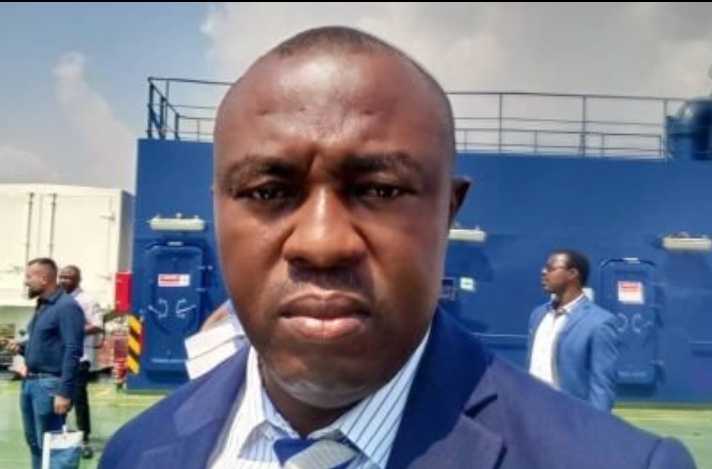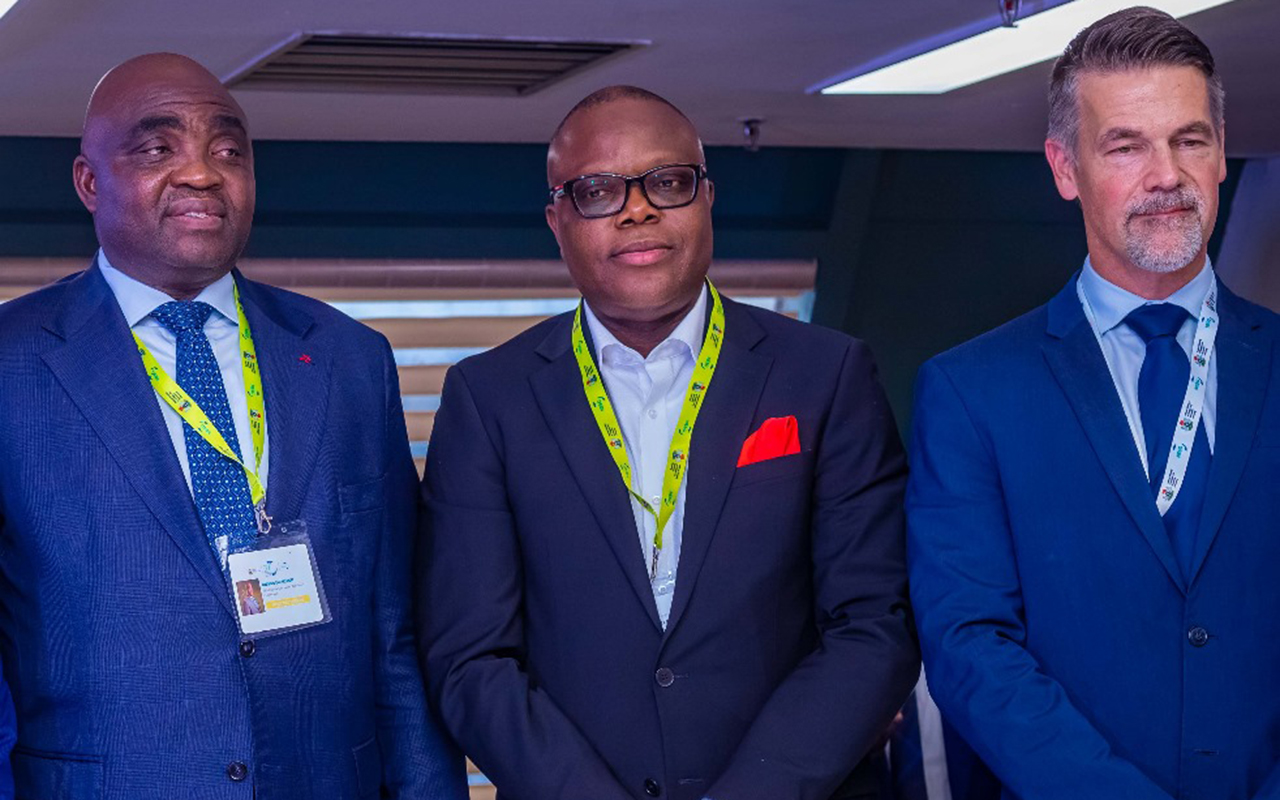With less than two months to the International Maritime Organisation (IMO) Council elections, Nigeria is mounting a high-stakes campaign to return to the global stage, pitching itself as the voice of Africa’s maritime interests. Despite recent security gains and blue economy reform, lingering industry and regulatory gaps could test its chances against 25 other contenders vying for 20 seats, ADAKU ONYENUCHEYA reports.
Nigeria will compete with 25 other countries for a seat among the 20 slots in Category C of the International Maritime Organisation (IMO) Council for the 2026/2027 biennium in an election that will take place during the 34th session of the IMO Assembly holding between November and December 2025.
At the session, the Assembly will elect 40 Council members across Categories A, B, and C as provided under Articles 16 and 17 of the IMO Convention.
Category C, which Nigeria is contesting, has so far attracted 26 candidacies for 20 available seats, heightening campaign efforts to win the support of the 172 IMO member states eligible to vote.
The category is reserved for 20 states with special interests in maritime transport or navigation, whose election helps ensure representation of all major geographic regions, including Africa, Asia, Latin America, and Europe.
Countries vying for Category C seats include Nigeria, South Africa, Egypt, Kenya, Morocco, Bahamas, Bangladesh, Belgium, Chile, Cyprus, Denmark, Finland, Indonesia, Jamaica, Malaysia, Malta, Mexico, Oman, Pakistan, Peru, the Philippines, Qatar, Saudi Arabia, Singapore, Thailand and Türkiye.
Of the 26 candidates, 20 are current Council members seeking to retain their seats. The other six – Nigeria, Oman, Pakistan, Belgium, South Africa and Thailand – are pushing to secure places in the next term.
While five African countries are competing under Category C, Liberia aims to maintain its automatic slot in Category A, which it currently holds. This brings the total number of African contenders to six, even though the continent currently holds only four out of 40 seats, even with its 25 per cent membership control.
The Minister of Marine and Blue Economy, Adegboyega Oyetola, has expressed concern over the imbalance. He noted that Africa, with roughly a quarter of the IMO’s 176 member states, remains underrepresented in the Council.
Worried by the figures and the Council’s importance to maritime development on the continent, Oyetola lamented that the disparity underscores the urgent need for stronger African representation in the governance of global shipping.
Oyetola stressed that Nigeria’s candidacy reflects a broader commitment to champion stronger African representation in global maritime governance. He said Nigeria was committed to helping bridge that gap on behalf of the continent.
Why IMO seat matters
An IMO Council seat gives elected countries a voice in the executive work carried out between assemblies, including supervising programmes, approving budgets, and steering regulatory priorities ranging from safety and security to decarbonisation and technical cooperation.
For regional leaders in the Gulf of Guinea and West Africa, securing a Category C seat is crucial, as it strengthens their ability to bring regional challenges, such as piracy, oil theft, capacity gaps, and technical assistance needs, onto the global agenda.
The seat also allows them to influence the rules that govern shipping services, which underpin their economies. The Category C seat is vital for ensuring geographic representation and balance, preventing dominance by the major shipping powers in Categories A and B.
For underrepresented regions, it provides a platform to advocate for specific concerns such as climate resilience for island states, maritime security in the Gulf of Guinea, or equitable decarbonisation policies that do not disproportionately burden developing economies.
Beyond diplomacy, holding a Council seat elevates a country’s international profile, fosters regional leadership, and opens opportunities to influence IMO committees such as those on maritime safety and marine environment protection.
The seat also strengthens domestic maritime industries, including ship registries, seafarer training, and port development, by enhancing credibility and attracting investment.
Nigeria’s ongoing campaign for the 2025 elections emphasises using a Category C seat to amplify Africa’s voice in IMO decisions on sustainability and security, positioning the continent as a key player in global maritime governance.
The Managing Director of the National Inland Waterways Authority (NIWA), Bola Oyebamiji, underscored Nigeria’s commitment to becoming a major player in the sector.
Speaking at a symposium, he highlighted the strategic value of Nigeria’s maritime resources, noting that regaining a Council seat would enhance the country’s influence on international maritime policies and strengthen its role in representing West Africa.
“The IMO seat will empower Nigeria to influence the global maritime ecosystem and position the country as a major stakeholder in shaping international maritime policies, especially in the West African sub-region,” Oyebamiji said. He described Nigeria’s coastal waters as an “untapped goldmine,” pointing to opportunities for job creation, investment, and trade expansion.
With its strategic location, he argued, Nigeria has the potential to serve as a regional hub for commerce. Oyebamiji further noted that the government’s marine and blue economy agenda is aimed at boosting Nigeria’s global visibility and attracting international investment.
“We have carefully positioned our Marine and Blue Economy sector to attract global attention, and our pursuit of an IMO Council seat is part of our broader strategy to accelerate economic integration and maritime development across Africa,” he added.
Nigeria’s preparedness
Nigeria boasts extensive maritime endowments, including 853 kilometres of coastline, more than 10,000 kilometres of inland waterways, and a vast Exclusive Economic Zone.
Its strategic location on the Gulf of Guinea, a corridor of vital commercial significance, further strengthens its maritime profile. The country plays a central role in regional shipping, with over 65 per cent of traffic bound for West and Central Africa transiting through Nigerian waters.
Since its last election to the IMO Council in 2009, Nigeria has made significant progress, including the creation of a dedicated Ministry of Marine and Blue Economy, as well as sustained investments in port modernisation, digitalisation, infrastructure upgrades, and trade facilitation.
Nigeria has also established a robust maritime security framework through the Deep Blue Project and the Suppression of Piracy and Other Maritime Offences (SPOMO) Act of 2019.
These measures have delivered a record of zero piracy incidents in Nigerian waters, while cases across the Gulf of Guinea have drastically declined.
The Director General of the Nigerian Maritime Administration and Safety Agency (NIMASA), Dr Dayo Mobereola, said Nigeria’s renewed institutional reforms and its expanding blue economy agenda are supported by the Federal Government’s ratification and domestication of key IMO conventions. He added that the country is also working to accede to additional instruments addressing greenhouse gas emissions, biofouling, and maritime labour rights.
However, he noted that compliance with global standards on emissions, pollution control, and sustainable port operations remains central to Nigeria’s alignment with international norms.
“Our ports serve as critical gateways for trade in West and Central Africa, while our shipping industry remains one of the largest in sub-Saharan Africa. With a renewed national focus on the blue economy and robust institutional reforms, Nigeria is repositioning itself as a regional maritime powerhouse and a dependable global partner in shaping the future of international shipping,” the minister said.
Oyetola reaffirmed Nigeria’s commitment to the United Nations Sustainable Development Goal 14, which focuses on conserving and sustainably using oceans, seas, and marine resources, as well as to the Kunming-Montreal Global Biodiversity Framework. He said Nigeria has signed the Agreement on Biodiversity Beyond National Jurisdiction (BBNJ) and has already commenced its ratification process.
According to him, by demonstrating regional leadership, Nigeria has also spearheaded efforts among West African nations to validate a regional roadmap for the development of a proposal to designate a High Seas Marine Protected Area in the Convergence Zone of the Canary and Guinea Currents.
Nigeria’s leadership has drawn praise from across Africa. The Permanent Representative of Equatorial Guinea to the UN and Chair of the African Group for September, Mohamed Dabo, commended Nigeria for its “unmatched leadership role in the fight against piracy in the Gulf of Guinea.”
He noted that Nigeria’s decisive actions had significantly reduced piracy incidents in the region, describing the country as a “brotherly nation” that consistently champions Africa’s agenda at the UN.
Dabo pledged the African Group’s full backing for Nigeria’s candidature at the IMO Council election in London later this year. South Africa’s Deputy Permanent Representative to the UN, Marthinus Van Schalkwyk, also welcomed Nigeria’s commitment to championing the expansion of the IMO Council to accommodate more African states. He affirmed South Africa’s support, noting Nigeria’s proven record of representing Africa’s maritime and economic interests.
“Nigeria’s candidature is not only about Nigeria, but about strengthening Africa’s collective voice in global maritime affairs. Nigeria has consistently demonstrated unwavering support for the objectives of the organisation and contributed meaningfully to the growth, safety, and sustainability of the global maritime sector,” Schalkwyk said.
Existing gaps
While Nigeria’s zero piracy record is expected to restore confidence in international shipping and reaffirm the country’s role as a guarantor of maritime safety, several persistent shortcomings could blunt its chances in the IMO Council election.
Nigeria still lags in the global shipping industry, as indigenous shipowners struggle with limited access to financing to purchase vessels and participate in international trade.
The long-delayed disbursement of the Cabotage Vessel Financing Fund (CVFF), designed to support local operators, remains a major setback, leaving many without access to the very fund meant to strengthen their capacity.
Capacity gaps also persist. A large number of Nigerian cadets remain unable to gain mandatory sea time because of the shortage of vessels, in contrast to countries like India and the Philippines, which collectively earn an estimated $6 trillion yearly from the export of seafarers.
Despite Nigeria’s progress, piracy, armed robbery, and oil theft remain regional realities. Analysts note that while incidents have declined in the Gulf of Guinea, criminal networks and illicit economies are quick to adapt.
Recent reports underscore that insecurity continues to threaten regional stability. According to the International Maritime Bureau (IMB), 35 incidents were recorded in the Gulf of Guinea in 2020, with 16 cases specifically linked to Nigeria in 2021.
Security intelligence firm Dryad Global reported five incidents near Bonny and Brass in 2022, followed by two hijackings off the Nigerian coast in 2023. The NIMASA also confirmed an armed robbery near Lagos Anchorage in 2024.
The Dean of Faculty at City University, Cambodia, Prof. Alfred Oniye, noted that the fight against piracy is not only about securing the waters but also about safeguarding Nigeria’s credibility in global maritime governance. Other challenges that remain include full automation of ports and compliance with greenhouse gas (GHG) reduction measures, which are still works in progress.
In addition, persistent boat accidents, particularly in Nigeria’s northern inland waterways, undermine investor confidence in the wider maritime sector.
Critics also point to gaps in regulatory enforcement, data collection, and inter-agency coordination, weaknesses that could limit Nigeria’s ability to lead on complex IMO technical workstreams such as GHG regulations, liability regimes or new safety codes.
Meanwhile, Nigeria’s Minister of Marine and Blue Economy has been leading diplomatic campaigns in New York and across Africa, securing endorsements from the African Group at the UN and formal backing from Switzerland. Campaign organisers and stakeholders present these diplomatic wins as evidence of broad political support for Nigeria’s candidacy.






